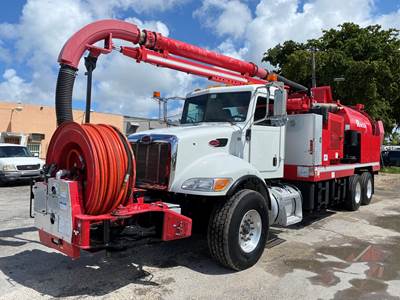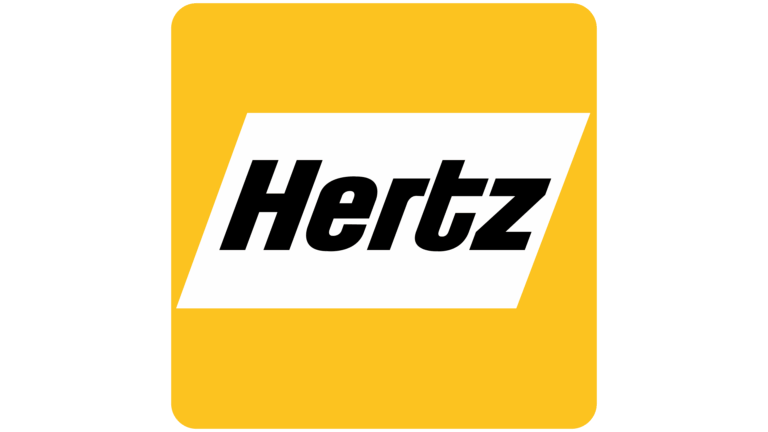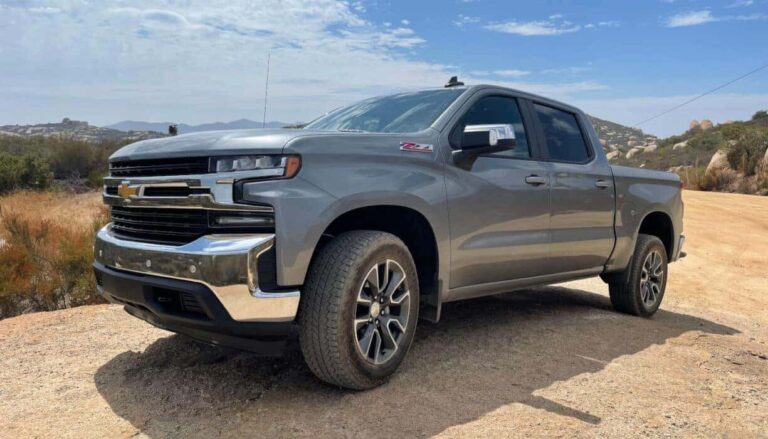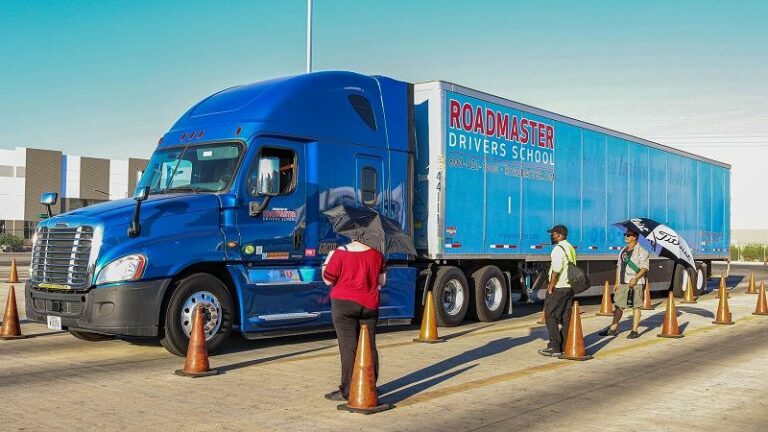Vactor Trucks For Sale: A Comprehensive Guide to Acquiring Your Essential Infrastructure Asset
Vactor Trucks For Sale: A Comprehensive Guide to Acquiring Your Essential Infrastructure Asset cars.truckstrend.com
In the world of municipal services, industrial maintenance, and specialized contracting, few pieces of equipment are as indispensable as the Vactor truck. Often referred to generically as "combination sewer cleaners" or "combo trucks," Vactor trucks – a brand name that has become synonymous with the technology – are the workhorses behind maintaining vital underground infrastructure. They are crucial for ensuring the smooth flow of wastewater, preventing flooding, and mitigating environmental hazards.
If you’re reading this, chances are you’re considering the significant investment of acquiring one of these powerful machines. This comprehensive guide will delve into everything you need to know about Vactor trucks for sale, from understanding their core functions and benefits to navigating the buying process, ensuring you make an informed and strategic decision.
Vactor Trucks For Sale: A Comprehensive Guide to Acquiring Your Essential Infrastructure Asset
What is a Vactor Truck and Why Are They Essential?
At its core, a Vactor truck is a specialized heavy-duty vehicle designed for both high-pressure water jetting and powerful vacuuming. This dual capability allows them to efficiently clear blockages, clean pipes, and remove debris from sewers, storm drains, catch basins, and various industrial applications.
Key Components and Functions:
- High-Pressure Water System: Equipped with a large water tank (typically 1,000 to 2,000 gallons or more) and a robust pump, Vactor trucks can generate water pressures ranging from 2,000 to 2,500 PSI (pounds per square inch) at flow rates of 60 to 80 GPM (gallons per minute). This powerful stream is directed through specialized nozzles attached to a hose reel, effectively dislodging grease, sediment, roots, and other obstructions within pipes.
- Vacuum System: A high-CFM (cubic feet per minute) vacuum pump creates immense suction, allowing the truck to draw dislodged debris, sludge, and water from pipes and collection points into a large debris tank (ranging from 9 to 15 cubic yards or more). This system typically includes a robust boom that extends and articulates, making it easy to access manholes and catch basins.
- Debris Tank: The heart of the vacuum system, this large cylindrical or rectangular tank stores the material collected from the cleaning process. It’s designed for easy dumping, usually via a hydraulic lift mechanism.
- Chassis: Built on heavy-duty truck chassis from manufacturers like Freightliner, Peterbilt, Kenworth, or International, Vactor trucks are engineered for durability, power, and the ability to carry significant weight.

Essential Applications:
- Sewer Line Cleaning: The primary use, maintaining sanitary and storm sewer systems to prevent backups, overflows, and infrastructure damage.
- Storm Drain Maintenance: Clearing catch basins and storm drains of leaves, litter, and sediment to prevent urban flooding.
- Hydro Excavation: Utilizing high-pressure water to precisely excavate soil, often around delicate underground utilities, minimizing the risk of damage.
- Industrial Cleaning: Removing sludge, chemicals, and other waste from industrial tanks, pits, and sumps.
- Lift Station Cleaning: Maintaining wastewater lift stations by removing grit and debris that can damage pumps.
- Emergency Response: Responding to spills, floods, and other environmental incidents requiring rapid cleanup.


Vactor trucks are not just machines; they are vital tools that contribute to public health, environmental protection, and the smooth functioning of urban and industrial environments.
Benefits of Investing in a Vactor Truck (New vs. Used)
The decision to purchase a Vactor truck is a significant one, and a key consideration is whether to opt for a new or a used model. Both pathways offer distinct advantages:
Benefits of a New Vactor Truck:
- Latest Technology & Features: New trucks come equipped with the most advanced engines, control systems, safety features, and efficiency enhancements.
- Warranty Protection: Comprehensive manufacturer warranties provide peace of mind and cover major component failures for a specified period.
- Customization: You can spec out a new truck to perfectly match your specific operational needs, choosing exact tank sizes, pump pressures, vacuum capabilities, and optional accessories.
- Reliability & Less Downtime: New vehicles are less likely to experience immediate mechanical issues, leading to higher uptime and productivity.
- Financing Options: Often, more favorable financing terms are available for new equipment.
Benefits of a Used Vactor Truck:
- Cost-Effectiveness: This is the most significant advantage. Used trucks are substantially less expensive than new ones, making them accessible for smaller businesses, startups, or those with tighter budgets.
- Immediate Availability: Used trucks are typically available for immediate purchase and deployment, avoiding the lead times associated with new builds.
- Depreciation Savings: The steepest depreciation occurs in the first few years. Buying used means you avoid this initial loss.
- Proven Track Record (if well-maintained): A used truck with a solid maintenance history can offer reliable performance at a fraction of the cost.
- Quicker ROI: Lower upfront costs can lead to a faster return on investment, especially for established operations with consistent work.
When to Choose Which: If your budget allows, and your operations demand the absolute latest in technology, efficiency, and long-term reliability without immediate concerns for upfront cost, a new truck is ideal. However, for most contractors and smaller municipalities, a well-inspected, late-model used Vactor truck offers exceptional value, providing robust capability at a significantly reduced price point.
Key Considerations When Buying a Vactor Truck
The purchasing process for a Vactor truck requires careful thought and due diligence. Here are the critical factors to evaluate:
-
Budget & Operating Costs:
- Purchase Price: This is obvious, but remember to factor in taxes, delivery, and any immediate repairs or upgrades.
- Ongoing Maintenance: Vactor trucks are complex machines. Budget for regular servicing, parts replacement, and potential repairs.
- Fuel Consumption: These are large, powerful diesel engines; fuel costs will be substantial.
- Insurance: Specialized heavy equipment insurance can be costly.
-
Application & Capacity Needs:
- Debris Tank Size (Cubic Yards): How much material do you need to hold before dumping? Larger tanks mean fewer trips to the dump site, increasing productivity. (e.g., 9-yard, 12-yard, 15-yard).
- Water Tank Size (Gallons): How much water do you need for jetting before refilling? Larger tanks mean longer cleaning cycles. (e.g., 1000-gallon, 1200-gallon, 1500-gallon).
- Pump Pressure (PSI) & Flow (GPM): Higher pressure and flow are better for tougher blockages and larger diameter pipes.
- Vacuum Airflow (CFM): Higher CFM means more powerful suction and faster material removal.
- Specialized Features: Do you need hydro excavation capabilities? Winterization kits for cold climates? Advanced camera systems?
-
Chassis Specifications:
- Engine: Horsepower, torque, and emissions standards (e.g., EPA Tier ratings).
- Transmission: Automatic transmissions are common and often preferred for ease of operation.
- Axle Configuration & GVWR (Gross Vehicle Weight Rating): Ensure the truck can legally carry your desired load of water and debris, especially when full. Consider tandem axles for heavier loads.
- Mileage & Engine Hours (for used trucks): High mileage or engine hours don’t necessarily disqualify a truck, but they indicate more wear and tear. Look for a balance.
-
Condition (Crucial for Used Trucks):
- Engine & Drivetrain: Check for leaks, unusual noises, and proper fluid levels. Get a professional inspection if possible.
- Pump & Vacuum System: These are the heart of the Vactor. Test both thoroughly. Listen for unusual noises, check pressure gauges, and ensure strong suction.
- Hydraulic System: Inspect hoses, cylinders, and pumps for leaks or damage. The boom operation should be smooth.
- Debris & Water Tanks: Look for rust, cracks, or damage. Ensure the debris tank opens and closes smoothly.
- Hoses & Nozzles: Check for wear, cracks, or blockages.
- Tires & Brakes: Critical safety components.
- Frame & Undercarriage: Inspect for excessive rust or structural damage.
- Electrical System: Test all lights, controls, and gauges.
- Documentation: Request maintenance records, service history, and previous inspection reports.
-
Dealer Reputation & Support: Choose a seller, whether a dealer or private party, with a good reputation. For dealers, inquire about parts availability, service capabilities, and post-sale support.
Where to Find Vactor Trucks For Sale
The market for Vactor trucks is diverse, offering several avenues for potential buyers:
- Authorized Vactor Dealers: The primary source for new Vactor trucks and often offer certified used models. They provide warranties, financing, and service support.
- Heavy Equipment Auctions: Online platforms (e.g., Ritchie Bros., IronPlanet, GovDeals for municipal surplus) and in-person auctions can offer competitive prices, but require thorough pre-bid inspection and "as-is, where-is" understanding.
- Online Marketplaces: Websites like TruckPaper.com, MachineryTrader.com, My Little Salesman, and even general classifieds like eBay often list Vactor trucks from private sellers, dealers, and brokers.
- Municipal & Government Surplus Sales: Cities and counties regularly cycle out older equipment. Check their websites or dedicated government auction sites.
- Direct from Contractors/Companies: Some companies sell their used equipment directly when upgrading or downsizing. Networking within the industry can uncover these opportunities.
The Buying Process: A Step-by-Step Guide
- Define Your Needs & Budget: Before looking, know exactly what you need (tank size, pump power, specific features) and what you can realistically afford.
- Research & Shortlist: Browse listings from various sources. Compare specifications, ages, and prices.
- Thorough Inspection (Crucial for Used):
- Visual Inspection: Look for obvious damage, rust, or leaks.
- Operational Test: If possible, operate the jetting and vacuum systems, extend the boom, and test all controls.
- Professional Inspection: For used trucks, strongly consider hiring a qualified mechanic specializing in heavy equipment or Vactor trucks to conduct a pre-purchase inspection. This can uncover hidden issues.
- Review Maintenance Records: A well-documented service history is a strong indicator of a truck’s condition and how well it was maintained.
- Negotiate: Don’t be afraid to negotiate the price, especially for used equipment. Factor in any identified repair needs.
- Secure Financing: If you’re not paying cash, arrange financing through a bank, credit union, or equipment finance company.
- Arrange Transport: Vactor trucks are large. Plan how you will transport the truck from the seller to your location.
- Post-Purchase Training & Setup: Ensure your operators are properly trained on the specific model you acquire.
Maintaining Your Vactor Truck for Longevity
Once you’ve acquired your Vactor truck, proper maintenance is paramount to ensure its longevity, efficiency, and safety.
- Routine Fluid Checks: Regularly check engine oil, transmission fluid, hydraulic fluid, coolant, and pump oil.
- Filter Replacement: Adhere to manufacturer schedules for air filters, fuel filters, oil filters, and hydraulic filters.
- Pump & Vacuum System Care:
- Flush the water pump after each use, especially if using non-potable water.
- Inspect and clean vacuum hose and debris tank regularly to prevent blockages and corrosion.
- Check for wear on vacuum blower components.
- Hose & Nozzle Inspection: Regularly inspect high-pressure hoses for wear, cracks, or bulges. Clean and inspect nozzles for wear patterns that can affect performance.
- Debris & Water Tank Cleaning: Empty and clean tanks regularly to prevent buildup and corrosion.
- Boom & Hydraulic System Checks: Lubricate boom pivot points and inspect hydraulic lines for leaks or damage.
- Winterization: If operating in cold climates, follow strict winterization procedures to prevent freezing and damage to the water system.
- Operator Training: Ensure all operators are well-trained not only on operation but also on daily inspection and basic maintenance.
Estimated Vactor Truck Price Table (Illustrative)
It’s crucial to understand that prices for Vactor trucks vary wildly based on year, mileage/hours, condition, specific features, tank sizes, pump capabilities, and market demand. The table below provides broad estimates and should only be used as a general guide. Always get specific quotes for individual units.
| Category | Age Range (Years) | Debris Tank (Cu. Yds) | Water Tank (Gallons) | Key Features/Condition Factors | Estimated Price Range (USD) |
|---|---|---|---|---|---|
| New Vactor Truck | 0-1 | 9-15 | 1000-1500+ | Latest technology, full warranty, customization, premium features | $350,000 – $550,000+ |
| Late Model Used | 2-7 | 9-15 | 1000-1500+ | Low to moderate hours/mileage, good condition, some warranty possible, modern features | $180,000 – $340,000 |
| Mid-Life Used | 8-15 | 9-12 | 1000-1200 | Moderate to high hours/mileage, likely needs some refurbishment or minor repairs, still functional | $80,000 – $170,000 |
| Older/High-Hour Used | 15+ | 9-12 | 1000-1200 | High hours/mileage, significant wear and tear, potential for major repairs, often "as-is" | $30,000 – $75,000 |
Note: Prices are highly variable. These are general estimates for fully functional units and do not include transportation, taxes, or potential refurbishments.
Frequently Asked Questions (FAQ) About Vactor Trucks
Q1: What is the typical lifespan of a Vactor truck?
A1: With proper maintenance, a Vactor truck chassis can last 15-20 years or more, while the Vactor equipment itself (pump, vacuum, tanks) can also last a similar duration, often requiring major overhauls or component replacements along the way. Hours of operation are often more indicative of wear than mileage.
Q2: Can I customize a used Vactor truck?
A2: Yes, to a certain extent. You can add or upgrade components like specialized nozzles, remote controls, camera systems, or hydro excavation kits. Major structural or system changes are more complex and costly.
Q3: What permits or licenses are needed to operate a Vactor truck?
A3: In most regions, due to their size and weight (often exceeding 26,000 lbs GVWR), operating a Vactor truck requires a Commercial Driver’s License (CDL), typically a Class B with air brake endorsement. Specific state or local regulations may also apply.
Q4: How much does Vactor truck maintenance cost annually?
A4: This varies greatly depending on usage intensity, age of the truck, and proactive maintenance vs. reactive repairs. Budgeting anywhere from $5,000 to $20,000+ per year for a used truck is not uncommon, especially as components age. New trucks will have lower costs initially.
Q5: Is financing available for used Vactor trucks?
A5: Yes, many banks, credit unions, and specialized equipment finance companies offer loans for used Vactor trucks. The terms and interest rates will depend on the age of the truck, its condition, and the buyer’s creditworthiness.
Q6: What’s the difference between a "Vactor truck" and a "combo truck"?
A6: "Vactor" is a brand name (Vactor Manufacturing) that produces combination sewer cleaners. "Combo truck" or "combination sewer cleaner" is the generic term for this type of equipment, which combines high-pressure water jetting and vacuuming capabilities. Other manufacturers like Vac-Con, Sewer Equipment, and GapVax also produce combo trucks.
Conclusion
Acquiring a Vactor truck, whether new or used, is a strategic investment in the efficiency and capability of your operations. These powerful machines are the backbone of modern infrastructure maintenance, ensuring public safety, environmental compliance, and the smooth functioning of essential services.
By thoroughly understanding your needs, meticulously researching available options, conducting rigorous inspections (especially for used models), and planning for ongoing maintenance, you can make an informed decision that yields significant returns for years to come. The right Vactor truck isn’t just a purchase; it’s a commitment to superior performance and reliable service.





